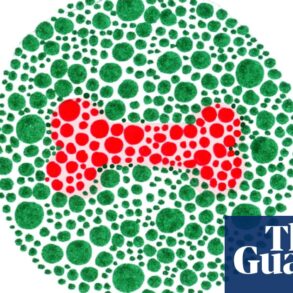
Two bacteria may be better than one when it comes to probiotics. In South Korea, scientists conducted an experiment to address dog obesity using a mixed probiotic formula containing strains of Lactiplantibacillus plantarum and Bifidobacterium breve. In this experiment, Gachon University and Cell Biotech Co. researchers observed improvements in dogs’ body conditions, lipid metabolism and gut microbiota balance following supplementation with the probiotic mix.
“This study demonstrated that targeted probiotic supplementation can significantly alter the gut microbiome and enhance metabolic health in dogs, suggesting that probiotics could be an effective strategy for managing obesity and improving metabolic health in canine populations,” the researchers wrote in Scientific Reports.
To find dogs for their study, the scientists reached out to the local community to recruit 41 overweight and obese dogs with a veterinarian-assessed body condition score (BCS) of 6 or more. For 12 weeks, one group of dogs received a mixed probiotic formula twice daily, while the control group did not. The study tracked weight changes, BCS, blood metabolite profiles and gut microbiota composition. The researchers monitored the dogs’ physical activity with pedometers.
The dogs receiving probiotics decreased in body weight and BCS. Likewise, those dogs had reductions in serum triglycerides and total cholesterol, suggesting cardiovascular benefits from probiotic supplementation. A hormone associated with fat storage, leptin, also declined in dogs taking probiotic supplements, while adinopectin, a hormone associated with improved metabolic function, increased.
Effects of probiotic mix on dog health factors
One of the bacteria in the probiotic mix, Lactiplantibacillus, increased within dogs’ gut microbiota in the probiotic group, along with a reduction in Erysipelatoclostridium, Faecalibacterium, Staphylococcus, Corynebacterium, Gemella, Muribaculum, Muribaculaceae, Faecalibaculum, Paramuribaculum and Akkermansia. Previous research provided evidence that these bacterial shifts may reflect improved metabolic health, reduced obesity risk and better gut function. For example, Erysipelatoclostridium, which has been associated with obesity and fatty liver disease, decreased significantly. Speaking of liver health, dogs receiving probiotics exhibited lower serum aspartate aminotransferase (AST), alanine aminotransferase (ALT), and gamma-glutamyl transferase (GGT) levels, suggesting improved liver function. The researchers also observed correlations between increased Lactiplantibacillus levels and reduced GGT and insulin levels.
Along with conventional obesity management through calorie restriction and increased exercise, probiotic supplementation may serve as an additional tool to support metabolic health and weight management in obese and overweight dogs. However, the researchers did note that this study involved a small number of dogs and further research would need to verify their observations.
This post was originally published on this site be sure to check out more of their content.













































